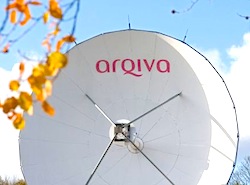The UK government has selected infrastructure provider Arqiva to provide mobile services in rural parts of Britain, as part of the Mobile Infrastructure Project (MIP).
Roughly €177 million has been set aside to fund MIP, which aims to connect rural communities where there is no commercial business case to deploy mobile services, as part of the UK’s overall aim to be a leading digital economy.
The government has also put €413 million into its rural broadband project which is currently being rolled out by BT, as well as €177 million into its “super-connected cities” programme.
Arqiva has won the government tender to provide a full-scale mobile network roll-out to remote areas, including network planning, site acquisition, deployment of site infrastructure and installation of equipment.
The new network will cover up to 60,000 premises and sections of 10 major roads that currently do not benefit from mobile coverage.
According to Nicolas Ott, Managing Director, Government Mobile & Enterprise for Arqiva, around 500 new mobile sites will be required.
“Finding the sites and acquiring them will be the greatest challenges. In some cases, we’re going to have to build a road to be able to build those sites as they’re in very remote locations,” he said.
“We’ve been given two years to make all the sites commercially available to the operators but nothing gets built in Scotland in the winter so it’s effectively fewer than 24 months.”
Arqiva already operates 10,000 mobile sites across the UK for the four main mobile operators Vodafone, EE, O2 and Three. For the new mobile network, the heights of the sites will be dictated by propagation requirements, with smaller sites being about 12 metres tall, while other sites go up to 25 metres in height.
If the area is a low-traffic one, Arqiva said it will build a lightweight mast, and backhaul will be provided either by microwave or by a leased line fibre connection.
“On the technology front, it is for the operators to decide what they want to do. MIP wants the operators to provide voice and text coverage, so in theory 2G is enough, but if operators want to roll out 3G, it’s their choice,” Ott told Mobile Europe.
“The requirements for the infrastructure are future-proof, what we build is meant to stay in place for over 20 years even as service portfolios evolve over time. The minimum you need will be two sets of antennas for the smallest sites, but some sites will have up to six antennas if the operators want to offer 360-degree coverage.”
Ed Vaizey, Culture Minister said: “Arqiva’s appointment today is great news for rural communities throughout the UK, who stand to benefit enormously from this £150m project to improve mobile phone coverage.
“Good mobile connectivity is becomingly increasingly important and it is crucial that businesses and individuals are not left struggling with poor and intermittent coverage.”



